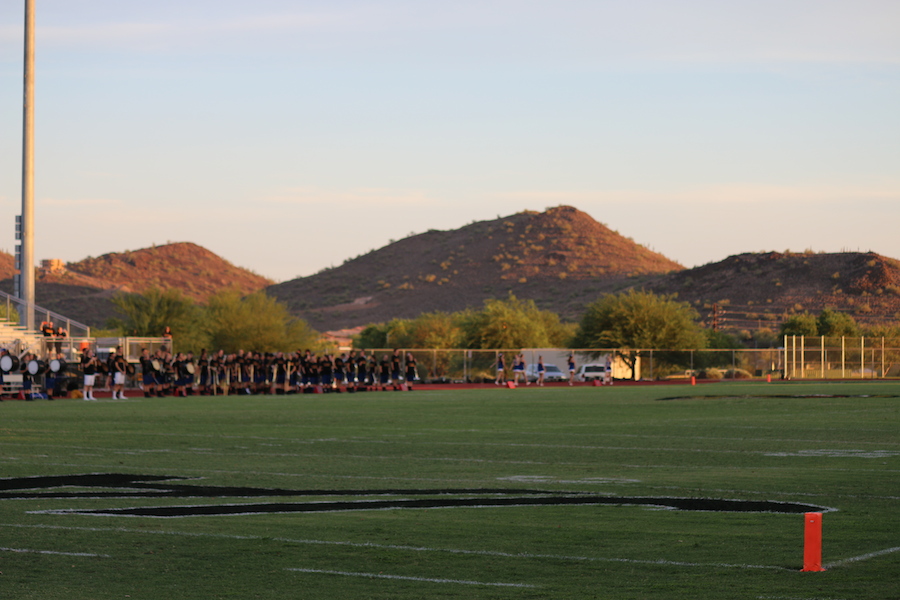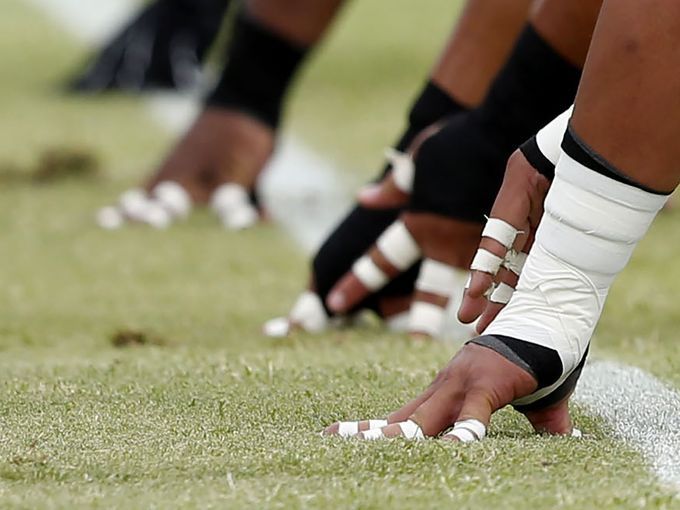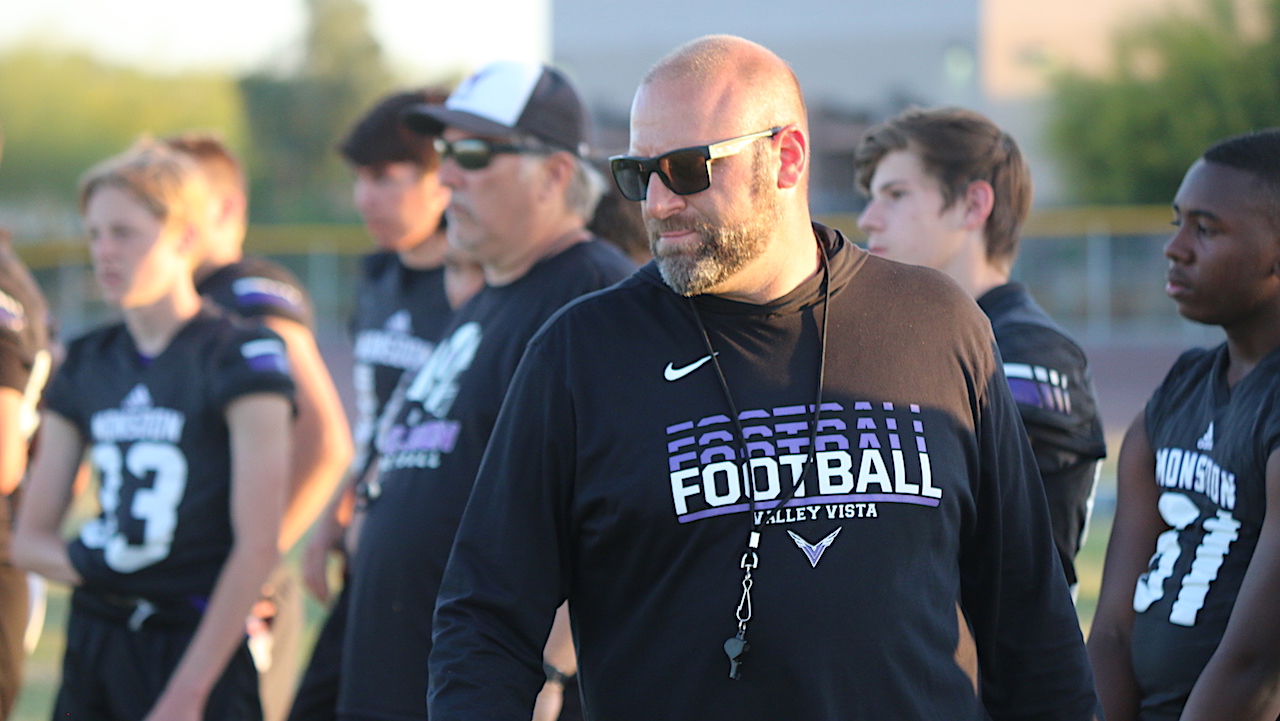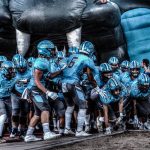Scattered across the state are high schools serving the students of rural Arizona. Their sports teams travel into the big cities and every corner of the state. The schools with the smallest enrollment in the state are categorized in the AIA’s 1A Conference and play an eight-man version of the fall sport we all love.
A unique set of rules and regulations make for a completely different game than the larger schools play. Almost like a different art form. Along with different techniques, the organization and training for 8-man football looks different than its 11-man counterpart. This includes walking the current tight rope amid a worldwide pandemic.
“Our school here in Salome has many challenges without a pandemic with getting summer workouts done,” Salome Head Coach, Bryan McCarty, said. “Our kids live far away and getting them together is challenging in and of itself. Add the pandemic and it adds another barrier for us to work through.”
The 1A Conference for football in the AIA consists of 23 programs across Arizona with school enrollment ranging from 56 total students to 249 students. These programs often travel the most of all schools, with opposing teams varying from preparatory schools in Phoenix to rural communities in every corner of the state.
Salome football’s 1A West Region schedule consists of six teams with their shortest drive, a mere 90 miles to Bagdad High School. Outside of travel logistics, small-town football has still faced unique circumstances while also battling what 6A schools also must overcome.
“It’s tough to relearn how to not high-five or to keep students apart, but it’s getting easier,” McCarty said. “I think the biggest thing is the uncertainty of in-person school or even sports in general. Not having answers for all the student’s questions is always tough.”
The city of Salome was founded in 1904, nearly 100 miles west of Phoenix in La Paz County. The Salome Frogs have been ranked in the top four of the 1A Conference the past two seasons with a student body of 134.
“I think that the difference between us and a bigger school is really knowing each student and their families so it may be easier to communicate and coordinate how we follow guidelines or how families are doing,” McCarty said. “Having a smaller number of athletes is easier to keep them separated into small groups to work position techniques as well.”
While rural towns are often secluded from big cities like Phoenix and Tucson, they still face their own unique difficulties during a pandemic.
“Everyone’s still concerned, everyone has a high worry, the only difference is we’re in a fishbowl,” Bagdad Head Coach, Dalton Mills, said.
Every night I go to the track and look at the field and dream about getting back to Friday Nights with a bunch of Copper Miners & Families in the stands, lined up on the fence, yelling for their Boys in Blue!!! #GoBigBlue #SultanGang pic.twitter.com/5l66QlGVCz
— Dalton Mills (@sultanbaseball5) July 14, 2020
The town of Bagdad is home to fewer than 2,000 citizens with a high school enrollment of 135 students last year. Mill’s program averages about 30 students in the fall and has around 20 athletes participating in summer workouts.
The small mining town is 100 miles northwest of Phoenix in Yavapai County and was established in 1882, known for its copper mining productivity. The Bagdad Sultans have made their way to the 1A or Division VI quarterfinals every season since 2012, including a State Championship in 2016.
While still in Phase I of the AIA’s recommendations, having groups of ten or less is not a major problem for small schools. The Sultans have split their attendance in half between indoor weight workouts, and outdoor field sessions. Bagdad still must follow AIA guidelines practicing without footballs, no contact, no spotters in the weight room, and constant sanitation.
“I think the biggest obstacle is our kids’ mental health and mental wellbeing, not knowing if they are getting back to school, getting back to football,” Mills said. “We just try to make sure that they keep their hope and keep it positive, be honest with them, and tell them how things are.
“Hopefully, everyone will be allowed to play because I think our kids need it.”
Related posts:
Devon Henry
Arizona native, Devon Henry, joined the Sports360AZ crew in 2018 after graduating from Arizona State's Walter Cronkite School of Journalism & Mass Communication. Devon has avidly partaken in coverage of the Arizona high school sports scene since 2013 and has covered NASCAR and INDYCAR at Phoenix Raceway since 2017. Devon is also a play-by-play announcer, calling over a dozen different sports and hundreds of events.



